Freelance producer Caoimhe Roddy decided to switch from studying English to studying game design one week before she was due to move to another country for university. “I love games, and I actually jumped back and forth about doing games for ages,” she explains. “I didn’t think being in games was possible for me because I didn’t think I’d be able to learn how to code, and whenever I looked up degrees and courses in games they were all really code-based. I just didn’t really have the confidence to do that.” In her program there was only one other woman, and neither of them had the hands-on familiarity with game engines and 3D modeling software that their male classmates at least claimed to have.
Roddy persevered, but she acknowledges that the isolation and perceived experience gap she felt drive other women away. “I’ve ended up in this industry, and I feel lucky to be here, but there’s some women that second guess themselves and that’s it,” she said. “They let that overcome them and decide to step away. It’s too overwhelming, and they don’t feel welcome. It’s hard to find support.”
According to data from the Entertainment Software Association, 46 percent of self-described gamers in the United States are women. In defiance of conventional wisdom about games’ target audience, adult women gamers outnumber teenage boy gamers almost two to one. Despite this, some estimates suggest only 21 percent of people working in the industry are women. The lack of support Roddy mentioned in the culture, the education system, and the industry itself is driving women away at epidemic rates. It’s hard to imagine how much potential talent has been lost because the fan-to-professional pipeline keeps signalling — completely wrongly, according to the data — that video gaming is a man’s world.
On July 22, Roddy, PlayStation producer Rachael Gregg-Smythe, and Women Making Games admin Lucy Smith launched Girls’ Game Lab. The UK initiative will partner with local game studios to host workshops where girls ages 8-12 can learn to make their own video games. Roddy doesn’t expect to single-handedly correct the video game industry’s gender imbalance, but she does see an opportunity to give the next generation of women in gaming more help than she had.
Roddy believes that teaching girls early that they can make games and won’t be the only girls doing so will help give them the confidence around games that boys seem to naturally exude. “Guys learn in different ways; they’re confident in different ways,” Roddy said. “My [university] students, whenever they’ve got their projects, the guys will stand up like, ‘I made this thing and it’s amazing.’ They’ll not explain that they struggled in any way. And all my students that were girls would be very honest in their approach. They’d be like, ‘I found this really difficult. I was stuck on this problem for a few weeks.'”
That humility can be a self-imposed handicap, albeit accidentally, in an environment where male classmates are often so bold about celebrating their achievements. “If you’re in a majority-guy class, and all the guys are standing up saying they’re amazing, you’re going to go, ‘Oh, if they’re not struggling, maybe it’s not meant to be hard,” Roddy said. “But they’re just lying!”
Girls’ Game Lab will only be open for girls, giving them an environment where they can experiment and learn without constantly comparing themselves to their more experienced — or more egotistical — peers. That early confidence building could help prevent the seeds of self-doubt from ever being planted.
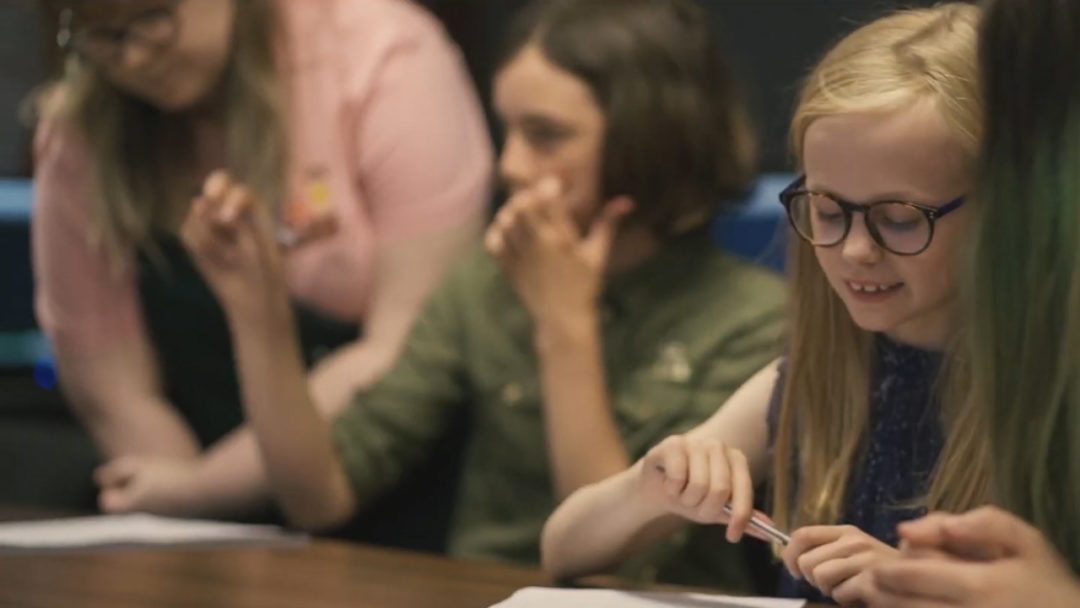
Photo by North
So far this tech-light, support-heavy approach seems to be working. It’s far too soon to tell how many workshop attendees will go on to become industry professionals “because they’re children — their attention span isn’t the longest,” Roddy admits. But organizers and volunteers are already seeing their classes inspire long-term interest. Roddy has been teaching proto-Lab game design classes to girls for months, and some students have returned to take the same course multiple times. Inspired by repeat visitors, she’s considering experimenting with less structured “jam session” classes where girls can tinker with their own projects with only light guidance from the volunteers. Parents of students tend to stay in touch, keeping lines of communication open for future opportunities. The volunteers and sponsors of every class will always be locals to make sure families know that there are game design communities everywhere.
“I wouldn’t be surprised if the games industry has missed out on some great ideas and great games because of those girls who have second guessed themselves.” – Caoimhe Roddy
Giving girls the confidence and contacts they need to thrive won’t just benefit the industry; it’ll benefit players. In non-diverse studios, made up of developers with roughly similar life experiences, a lot of cultural blind spots get left unchecked. This can lead to errors like Call of Duty: Modern Warfare 2 plastering its depiction of Karachi in Arabic, instead of Urdu, which could have been avoided if a Pakistani developer were working on the game partially set in Pakistan. And these studios are at increased risk of having aesthetic blind spots, too. “Literally every woman in the industry will tell you a story about when someone told them one of their ideas was ‘too feminine’ for a game,” Roddy explained.
Supposed industry wisdom about what constitutes a viable idea or look for a game holds back a lot of potentially fresh material. Those entrenched viewpoints can be difficult to uproot, even with decades’ worth of evidence that players respond to more than just guns and muscles. The year 2004’s offbeat Katamari Damacy, which came out when the sales charts were dominated by macho fare like Halo 2 and Grand Theft Auto: San Andreas, was a big enough success to warrant a re-release last year, over a decade after its debut. And as recently as 2015, expensive AAA franchise fare like The Witcher 3 and Fallout 4 have had to share headlines with unproven properties like Life Is Strange and Undertale. Both of those games sold millions of copies and dominated the cultural discourse by being sensitive and weird in ways that were supposedly non-viable.
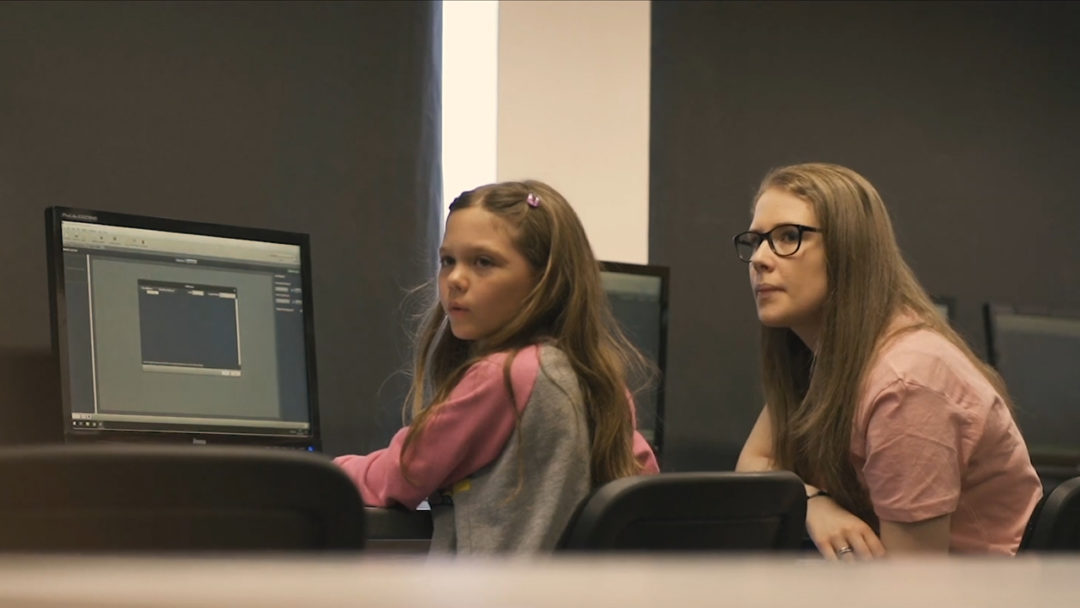
Photo by North
Some of the girls Roddy has taught play games themselves, but she says exposure to existing industry fare has done very little to limit their sense of what games can or cannot do. The campers mostly play Nintendo and mobile games, and a surprising number have expressed a fondness for the chaotic Goat Simulator. The most deeply entrenched gamers in any given class are Fortnite players, but they say they prefer the building to the shooting.
Blissfully unaware of the games industry’s self-imposed and often self-defeating restrictions, Roddy’s campers have been letting their feminine flags fly and venturing into territory the average mainstream studio would never touch. “They’re in a room full of girls, so they’re like, ‘I love unicorns. I’m making a game about a squirrel,'” she said. “We do see a lot that they’re not interested in violent games. And there’s no question of, ‘Is this acceptable?’ That doesn’t cross their minds.” It’s a stark contrast with the stuff that Roddy has observed boys of the same age try to make. “Teaching guys, they’ll immediately try and make something with horror, or shooting.”
Maybe that’s because boys have already internalized what games supposedly can and can’t be in a way that girls haven’t, or maybe the industry is simply already catering to the tastes of pre-adolescent boys. The point is that 8-12-year-old girls are already demonstrating a level of creativity and cheerful disregard for conventions that is surprising even organizers with years of industry experience. “Half the time you sit there and you’re like, ‘That’s a better game than anything I’ve ever made,'” Roddy said.
This kind of boundary-pushing from newcomers and outsiders is one of the things Roddy is most excited about. “The idea is that bringing in more diverse game developers is going to create more interesting games. The games industry is not going to last if we keep making battle royales and first-person shooters. If we’ve got these girls in, changing the norm, and saying, ‘Actually, games can be these things too,’ then that’s only good for the games industry.”
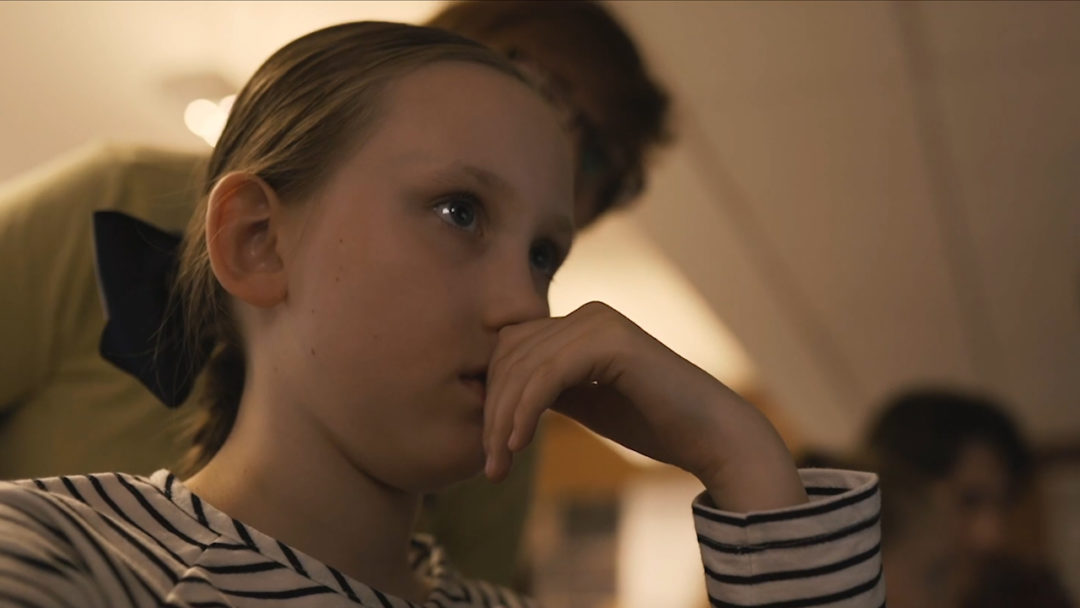
Photo by North
The immediate goals for Girls’ Game Lab are practical. “Right now, our main focus is to get event leaders in,” Roddy said. “Because at the minute a lot of people want to volunteer in their area, and a lot of people want to host workshops, but we’re only three women. So if four different cities want a workshop on the same day, we can’t accommodate that.”
Roddy said her goal is to set up a franchise-like structure for the organization, with event leaders using lesson plans prepared by herself, Gregg-Smythe, and Smith to set up semi-autonomous Girls’ Game Lab branches across the UK. Expanding the program’s reach internationally is a medium-term goal, but it would be a challenge for an operation that values thinking locally and developing communities.
Other long-term goals include cross-disciplinary crash courses for women already in the industry that could help producers learn more about coding, programmers learn more about art, or artists learn more about marketing. Demystifying certain parts of game development for other women would make it far easier for everyone to communicate and stay afloat in the industry.
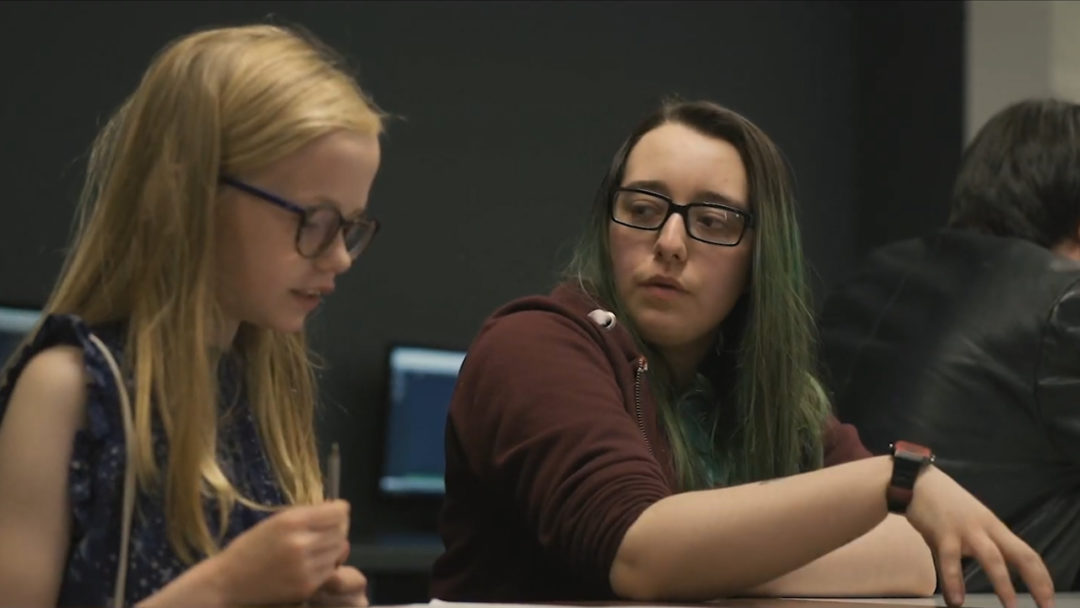
Photo by North
Roddy says that women’s voices are so distinct in games that she’s developed a sort of sixth sense for the presence of female game devs. “You can find tiny little things that you know a girl’s been involved in,” she said. “I saw there was this little indie game being made called Bee Kind. It was about just a little bee, and it’s pollinating flowers and picking up its honey. I immediately was like, ‘I wonder how many girls were on that team? That’s adorable.’ You can tell.”
Bringing more women’s unique creativity and sensibilities to gaming is one of Roddy’s primary motivations for launching Girls’ Game Lab. “I think the quality of games would skyrocket, stories especially,” she said. “I imagine stories will be told and characters will be developed from a far more grounded perspective.”
Girls’ Game Lab is currently seeking event leaders and partnerships with studios in the UK. You can learn more about the initiative, and how to support it, at their website.

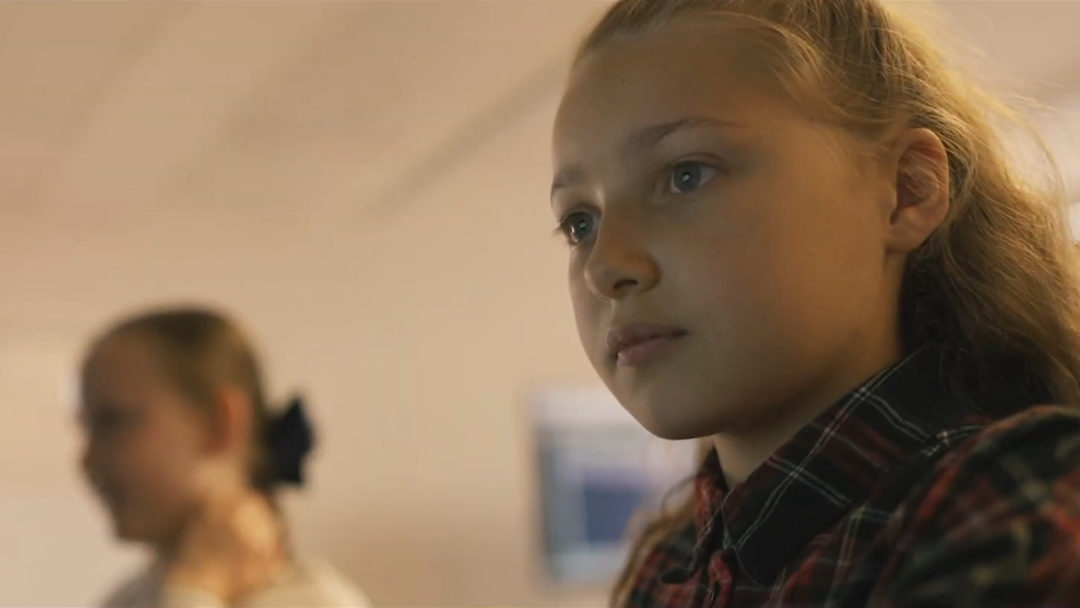



Published: Aug 5, 2019 11:57 am